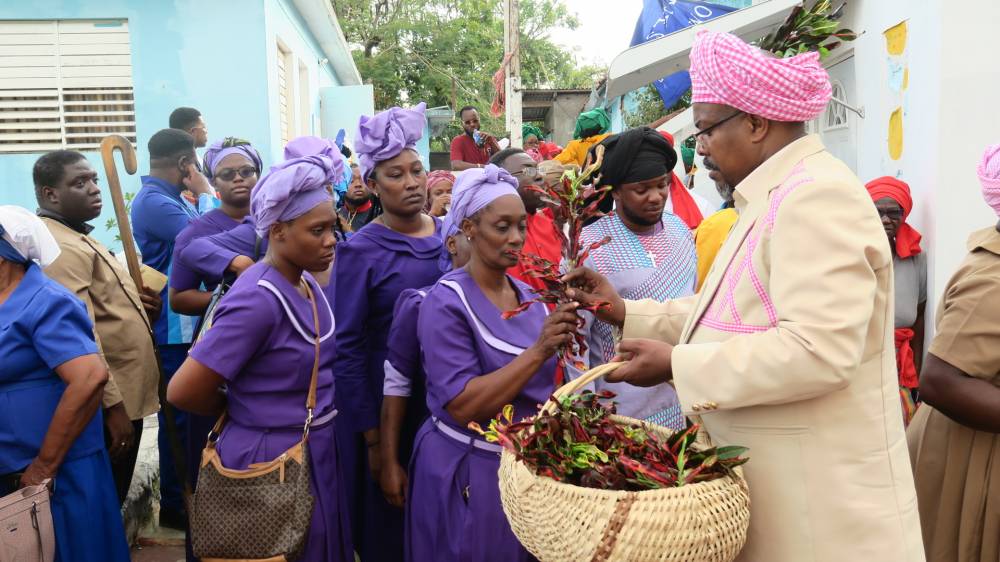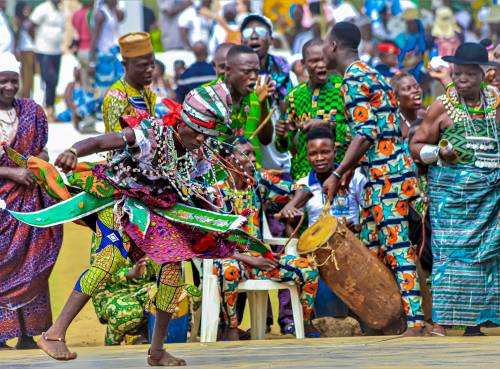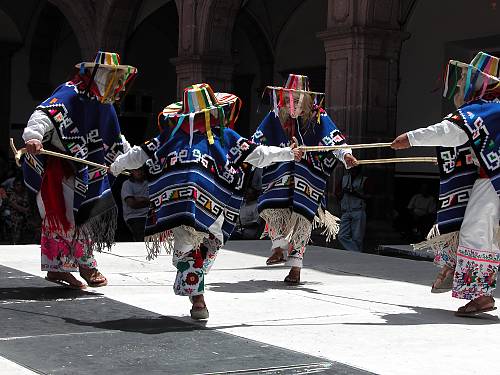Some 62 participants from 16 Caribbean Small Island Developing States (SIDS), countries and territories - Antigua and Barbuda, Bahamas, Barbados, Belize, Cuba, Dominica, Dominican Republic, Grenada, Guyana, Haiti, Jamaica, Saint Kitts and Nevis, Saint Lucia, Saint Vincent and the Grenadines, Suriname, Trinidad and Tobago, as well as Aruba, Curaçao, Sint Maarten (Kingdom of the Netherlands), British Virgin Islands, Montserrat, Anguilla, and Cayman Islands (United Kingdom of Great Britain and Northern Ireland) - took part in an online meeting on 12 June 2025 to deepen collaboration, share lessons learned, and explore strategies for nomination files to the Lists of the 2003 Convention.
Building on an initial capacity-building training held in September 2023, the experience-exchange meeting served as a platform for information-sharing on plans and priorities for nominations, as well as peer-to-peer exchange on recent nomination experiences, the identification of support needs, and introduction to additional key developments under the 2003 Convention.
Participants reflected on key insights gained from the 2023 training and engaged in a discussion on the challenges, lessons learned, and recommendations that emerged during the preparation of three nomination files, which led to the recent inscription of living heritage elements from the Caribbean on the Representative List: ‘Traditional knowledge and practices for the making and consumption of cassava bread’, ‘Pilgrimage to Watt Town’, and ‘Shakespeare Mas’, a traditional component of Carriacou’s annual carnival’. Speakers addressed a range of practical considerations in nomination preparation, such as coordinating multinational files, ensuring community participation and free, prior and informed consent, and the drafting of nomination forms.
Emphasizing the importance of sustaining collaboration with bearers and communities, a participant from Carriacou remarked that ‘the inscription on UNESCO’s List is a starting point. It is essential to continue building relationships and working together beyond the moment of inscription.’
Another participant from Haiti involved in the nomination of cassava bread also highlighted the value of regional dialogue fostered through joint efforts: ‘Multinational inscription allows for dialogue among peoples. We must continue raising awareness on the importance of multinational nominations.’ A participant from Cuba emphasized the importance of coordination, noting that ‘the first recommendation is to maintain cohesion among all those involved in the nomination process. Strong organization is important.’
The meeting concluded with an overview of the Convention’s listing mechanisms, new opportunities for international cooperation and the exchange of good safeguarding experiences, notably through the Platform for sharing good safeguarding experiences under development.
Organized by the UNESCO Office in Havana, in cooperation with the 2003 Convention Secretariat, and with support from the UNESCO Offices in Port-au-Prince and Kingston, the initiative contributes to UNESCO action for SIDS, while reinforcing national capacities and regional cooperation in the field of living heritage safeguarding. This initiative was made possible thanks to the generous support of the Kingdom of the Netherlands.
Learn more about the project Strengthening capacities for preparing nomination files for the Lists of the 2003 Convention in Small Island Developing States SIDS in the Caribbean.
Event:
- AnguillaAntigua and BarbudaCuraçaoArubaBahamasBarbadosBelizeCayman IslandsCubaDominican RepublicDominicaGrenadaGuyanaHaitiBritish Virgin IslandsJamaicaMontserratSaint LuciaSaint Kitts and NevisSaint Vincent and the GrenadinesSurinameTrinidad and Tobago




